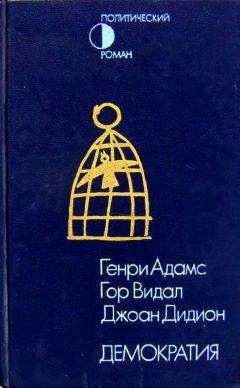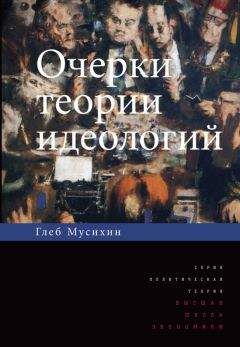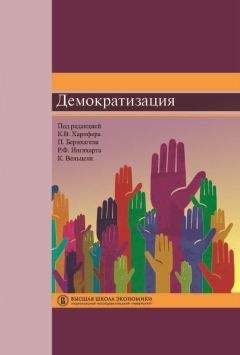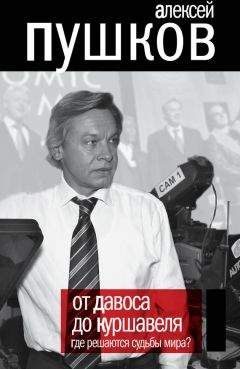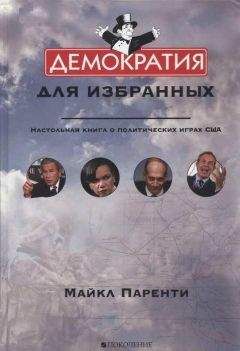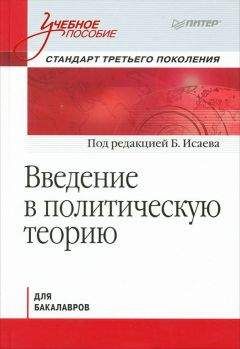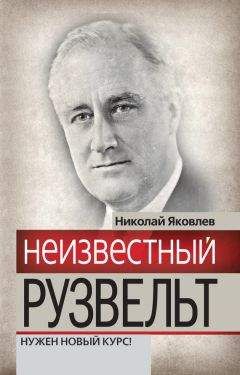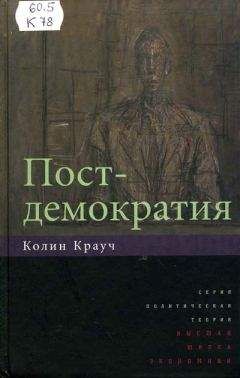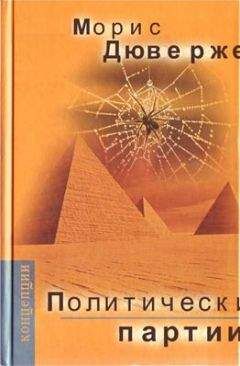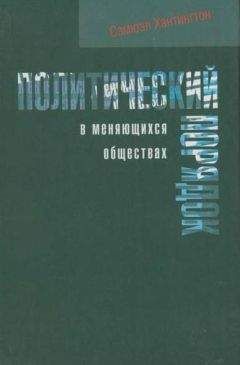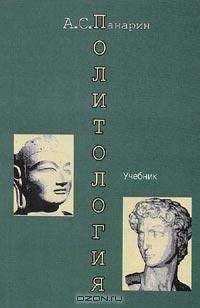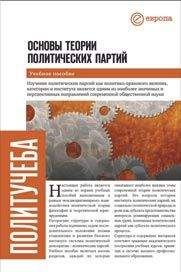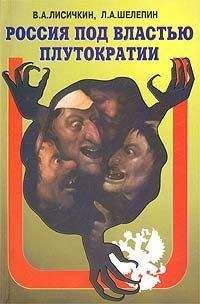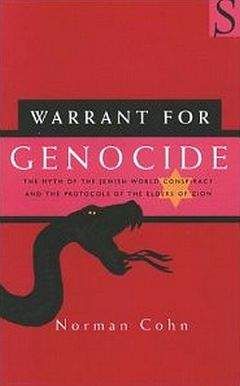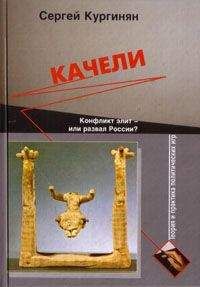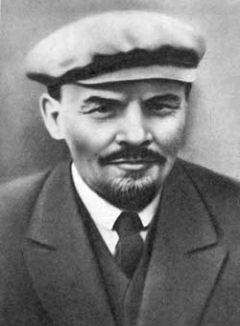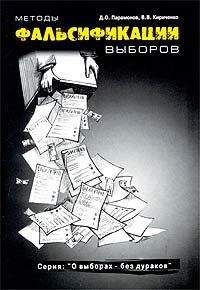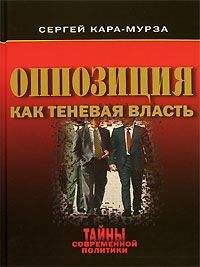Чарльз Эндрейн - Сравнительный анализ политических систем
Скачивание начинается... Если скачивание не началось автоматически, пожалуйста нажмите на эту ссылку.
Жалоба
Напишите нам, и мы в срочном порядке примем меры.
Описание книги "Сравнительный анализ политических систем"
Описание и краткое содержание "Сравнительный анализ политических систем" читать бесплатно онлайн.
Когда мы смотрим на политическую карту мира, то вряд ли нам приходит в голову мысль провести скрупулезный анализ всего многообразия существующих на Земле политических систем. Эту сложную, но выполнимую задачу поставил в своей книге профессор Ч. Эндрейн. Он не только сравнил различные политические системы, выявил общее и особенное в их функционировании, но и рассмотрел роль элит, групп и отдельных индивидуумов в проведении политического курса. Книга, пользующаяся большой популярностью в странах Запада, ныне станет доступна и нашему читателю, постоянно ощущающему потребность в учебной литературе по политическим наукам. Ее издание рекомендовано Российской ассоциацией политических наук.
Издание осуществлено при содействии Отдела по вопросам печати и культуры Посольства США
143
Russell Bova, «Political Dynamics of the Post–Communist Transition: A Comparative Perspective», World Politics 44 (October 1991): 113—38; Walter Laquer, «The Empire Strikes Out», New Republic 205 (September 16–23,1991): 24–28; Stephen F. Cohen, «What's Really Happening in Russia?» Nation 254 (March 2, 1992): 259–68; Seweryn Bialer, «Gorbachev's Program of Change: Sources, Significance, Prospects», Political Science Quarterly 103 (Fall 1988): 403–60; Basile Kerblay, Gorbachev's Russia (New York: Pantheon Books, 1989); David Mandel, «Actually Existing Privatization: An Interview with Yurii Marenich», Monthly Review 43 (March 1992): 20—28; Patrick Flaherty, «Privatization and the Soviet Economy», Monthly Review 43 (January 1992): 1—14; Christopher Young, «The Strategy of Political Liberalization: A Comparative View of Gorbachev's Reforms», World Politics 45 (October 1992): 47–65.
144
Kiss, «Democracy without Parties?» 226–31; Schopflin, «The End of Communism in Eastern Europe», 3—16; Kitschelt, «The Formation of Party Systems in East Central Europe», 7—50; Fish, «The Emergence of Independent Associations and the Transformation of Russian Political Society», 299—314; Ekiert, «Democratization Processes in East Central Europe», 285–313; Medvedev, «Politics after the Coup», 91–109; Boris Kagarlitsky, «Preface to Chaos», New Politics 3 (Winter 1991): 174–83; George W. Breslauer, «Bursting the Dams: Politics and Society in the USSR since the Coup», Problems of Communism 40 (November–December 1991): 2—12; Aurel Braun and Richard B. Day, «Gorbachevian Contradictions», Problems of Communism 39 (May–June 1990): 36–50; Anders Aslund, «The Soviet Economy after the Coup», Problems of Communism 40 (November–December 1991): 44—52; Stephen White, «Russia's Experiment with Democracy», Current History 91 (October 1992): 310—13; Angus Maddison, The World Economy in the 20th Century (Paris: Development Centre of the Organization for Economic Cooperation and Development, 1989), 36; Ellen Comisso, «Political Coalitions, Economic Choices», Journal of International Affairs 45 (Summer 1991): 1–29; Ellen Comisso, «Property Rights, Liberalism, and the Transition from 'Actually Existing' Socialism», East European Politics and Societies 5 (Winter 1991): 162–88; Pawel Bozyk, «The Transformation of East Central European Economies: A Critical Assessment», Studies in Comparative Communism 25 (September 1992): 257–73; James Petras, «Eastern Europe: Restoration and Crises», Journal of Contemporary Asia 21, no. 3 (1991): 301–26; Andre Gunder Frank, «Economic Ironies in Europe: A World Economic Interpretation of East–West European Politics», International Social Science JournalAA (February 1992): 41–56; Albert Bergesen, «Communism's Collapse: A World–System Explanation», Journal of Political and Military Sociology 20 (Summer 1992): 133—51; Roberto P. Korzeniewicz and Kimberley Awbrey, «Democratic Transitions and the Semiperiphery of the World–Economy», Sociological Forum 7 (December 1992): 609–40; Barbara A. Misztal, «Must Eastern Europe Follow the Latin American Way?» European Journal of Sociology, 34, no. 1 (1992); 151–79; Thomas E. Skidmore, «Is Latin America the Future of Eastern Europe? Axes of Comparison», Problems of Communism 41 (May–June 1992): 45–48; Laurence Whitehead, «The Alternatives to 'Liberal Democracy': A Latin American Perspective», Political Studies 40, Special Issue (1992); 146–59.
145
Peter H. Smith, «Crisis and Democracy in Latin America», World Politics 43 (July 1991): 608—34; Evelyne Huber Stephens, «Capitalist Development and Democracy in South America», Politics and Society 17 (September 1980): 281–352; Dietrich Rueschemeyer, Evelyne Huber Stephens, and John D. Stephens, Capitalist Development and Democracy (Chicago: University of Chicago Press, 1992), 155–225, 269–302; Abraham F. Lowenthal, ed., Exporting Democracy: The United States and Latin America (Baltimore, MD: Johns Hopkins University Press, 1991), esp. Abraham F. Lowenthal, «The United States and Latin American Democracy: Learning from History», 243–65.
146
Frances Hagopian, «After Regime Change: Authoritarian Legacies, Political Representation, and the Democratic Future of South America», World Politics 45 (April 1993): 464–500; Nancy Bermeo, «Rethinking Regime Change», Comparative Politics 22 (April 1990): 359–77; Ian Roxborough, «The Dilemmas of Redemocratization», Government and Opposition 23 (Summer 1988): 354–67; Guillermo O'Donnell, Philippe C. Schmitter, and Laurence Whitehead, eds.. Transitions from Authoritarian Rule: Comparative Perspectives (Baltimore, MD: Johns Hopkins University Press, 1986); Guillermo O'Donnell and Philippe C. Schmitter, eds.. Transitions from Authoritarian Rule: Tentative Conclusions about Uncertain Democracies (Baltimore, MD; Johns Hopkins University Press, 1986); Alfred Stepan, «State Power and the Strength of Civil Society in the Southern Cone of Latin America», in Bringing the Stale Back In, ed. Peter B. Evans, Dietrich Rueschemeyer, and Theda Skocpol (New York: Cambridge University Press, 1985), 317–43; Alfred Stepan, Rethinking Military Politics: Brazil and the Southern Cone (Princeton, NJ: Princeton University Press, 1988); Arturo Valenzuela, «A Note on the Military and Social Science Theory», Third World Quarterly 7 (January 1985): 132—43; J. Nef, «Redemocratization in Latin America or the Modernization of the Status Quo?» Canadian Journal of Latin American and Caribbean Studies 11 (May 1986): 43–55; George Philip, «Military–Authoritarianism in South America: Brazil, Chile, Uruguay and Argentina», Political Studies 32 (March 1984): 1–20; James Hanson and Jaime de Melo, «External Shocks, Financial Reforms, and Stabilization Attempts in Uruguay during 1974–83», World Development 13 (August 1985): 921; Roque B. Fernandez, «The Expectations Management Approach to Stabilization in Argentina dur ing 1976–82», World Development 13 (August 1985): 873; International Monetary Fund, International Financial Statistics Yearbook, vol. 44 (Washington, DC: International Monetary Fund, 1991), 119, 163; International Labour Office, Year Book of Labour Statistics 1991, vol. 50 (Geneva: International Labour Office, 1991), 615–19.
147
Norberto Lechner, «The Search for Lost Community: Challenges to Democracy in Latin America», International Social Science Journal 43 (August 1991): 541–53; Tina Rosenberg, «Beyond Elections», Foreign Policy, no. 84 (Fall 1991 ): 72–91.
148
James Petras, «State Terror and Social Movements in Latin America», International Journal of Politics, Culture, and Society 3 (Winter 1989). 179–212; James Petras, «The Metamorphosis of Latin America's Intellectuals», Latin American Perspectives 17 (Spring 1990): 102–12; Charles Guy Gillespie, Negotiating Democracy: Politicians and Generals in Uruguay (New York: Cambridge University Press, 1991), 218 246–48.
149
Evelyne Huber Stephens, «Democracy in Latin America: Recent Developments in Comparative Historical Perspective», Latin American Research Review 25, no. 2 (1990): 157–76; Terry Lynn Karl, «Dilemmas of Democratization in Latin America», Comparative Politics 23 (October 1990): 1–21; Terry Lynn Karl and Philippe С Schmitter, «Modes of Transition in Latin America, Southern and Eastern Europe»,, International Social Science Journal43 (May 1991): 269–84; Samuel P. Huntington, The Third Wave: Democratization in the Late Twentieth Century (Norman: University of Oklahoma Press, 1991), esp. 31–207; Samuel P. Huntington, «How Countries Democratize», Political Science Quarterly 106 (Winter 1991–1992): 579–616; Paul Cammack, «Brazil: The Long March to the New Republic», New Left Review, no. 190 (November–December 1991): 21–58; Maria Helena Moreira Alves, «Interclass Alliances in the Opposition to the Military in Brazil: Consequences for the Transition Period», in Power and Popular Protest, ed. Susan Eckstein (Berkeley: University of California Press, 1989), 278–98; John Markoff and Silvio R. Duncan Baretta, «Economic Crisis and Regime Change in Brazil: The 1960s and the 1980s», Comparative Politics 22 (July 1990): 421–44; Frances Hagopian, «'Democracy by Undemocratic Means?' Elites, Political Pacts, and Regime Transition in Brazil», Comparative Political Studies 23 (July 1990): 147—70; Charles Guy Gillespie, «Democratic Consolidation in the Southern Cone and Brazil: Beyond Political Disarticulation?» Third World Quarterly 11 (April 1989); 92–113 Charles Guy Gillespie. «The Role of Civil–Military Pacts in Elite Settlements and Elite Convergence: Democratic Consolidation in Uruguay» in: Elites and Democratic Consolidation in Latin America and Southern Europe, ed. John Higley and Richard Gunther (New York: Cambridge University Press, 1992), 178–207; Gillespie, Negotiating Democracy, 217–48; Luis E. Gonzalez, Political Structures and Democracy in Uruguay (Notre Dame, IN; University of Notre Dame Press, 1991); Marcelo Cavarozzi, «Patterns of Elite Negotiation and Confrontation in Argentina and Chile», in Elites and Democratic Consolidation in Latin America, 208–36; Carlos H. Waisman, Reversal of Development in Argentina: Postwar Counterrevolutionary Policies and Their Structural Consequences (Princeton, NJ: Princeton University Press, 1987), 253–86; James W. McGuire, «Union Political Tactics and Democratic Consolidation in Alfonsin's Argentina, 1983–1989», Latin American Research Review 27, no. 1 (1992): 37–74.
150
Brian Loveman, «Mision Cumplida? Civil Military Relations and the Chilean Transition», Journal of Interamerican Studies and World Affairs 33 (Fall 1991): 35–74; Brian Loveman, «Military Dictatorship and Political Opposition in Chile, 1973–1986», Journal of Interamerican Studies and World Affairs 28 (Winter 1986–1987): 1–38; Brian Loveman, «Government and Regime Succession in Chile», Third World Quarterly 10 (January 1988): 260–80; Brian Loveman, Chile: The Legacy of Hispanic Capitalism, 2d ed. (New York: Oxford University Press, 1988), 310–61; Eduardo Silva, «Capitalist Regime Loyalties and Redemocratization in Chile», Journal of Interamerican Studies and World Affairs 34 (Winter 1992–1993): 77–117; Rhoda Rabkin, «The Aylwin Government and 'Tuteltary' Democracy: A Concept in Search of a Case?» Journal of Interamerican Studies and World Affairs 34 (Winter 1992–1993): 119–94, Interviews by Roger Burbach with Sergio Bitar and Juan Pablo Cardenas, «Chile's Transition», World Policy Journal 6 (Winter 1988–1989): 169–202; Charles F. Andrain, Political Change in the Third World (Boston: Unwin Hyman, 1988), 182–203; Paul W. Drake and Ivan JaksiC, eds. The Struggle for Democracy in Chile. 1982–1990 (Lincoln: University of Nebraska Press, 1991); Pamela Constable and Arturo Valenzuela, A Nation of Enemies: Chile under Pinochet (New York: Norton, 1991 ); Karen Remmer, Military Rule in Latin America (Boulder, CO: Westview Press, 1991), 113–82; Genaro Arriagada, Pinochet: The Politics of Power, trans. Nancy Morris, Vincent Ercolano, and Kristen A. Whitney (Boston: Unwin Hyman, 1988); James Petras and Steve Vieux, «The Chilean 'Economic Miracle': An Empirical Critique», Critical Sociology 17 (Summer 1990): 57–72; Manuel Antonio Garreton, «Democratic Inauguration in Chile: From Pinochet to Aylwin», Third World Quarterly 12, nos. 3–4 (1990/1991): 64–80; Lois Hecht Oppenheim, «Introduction», Latin American Perspectives 18 (Winter 1991): 3–14; Alan Angell and Benny Pollack, «The Chilean Elections of 1989 and the Politics of the Transition to Democracy», Bulletin of Latin American Research 9, no. 1 (1990): 1—23.
151
James Petras, «State, Regime and the Democratization Muddle», Journal of Contemporary Asia 19, no. 1 (1989): 26–32; William С Smith, «Democracy, Distributional Conflicts and Macroeconomic Policymaking in Argentina, 1983—89», Journal of Interamerican Studies and World Affairs 32 (Summer 1990); 1–42; Patricio Silva, «Technocrats and Politics in Chile: From the Chicago Boys to the CIEPLAN Monks», Journal of Latin American Studies 23 (May 1991): 385–410; David E. Hojman, «Chile after Pinochet: Aylwin's Christian Democrat Economic Policies for the 1990s», Bulletin of Latin American Research 9, no. 1 (1990): 25—47; Timothy J. Power, «Politicized Democracy: Competition, Institutions, and 'Civic Fatigue' in Brazil», Journal of Interamerican Studies and World Affairs 33 (Fall 1991): 75–112; Jan Knippers Black, «Brazil's Limited Redemocratization», Current History 91 (February 1992): 85–89; Remmer, Military Rule in Latin America, 174–82; Gonzalez, Political Structures and Democracy in Uruguay, 85–166; Huntington, «How Countries Democratize», 579—616; «Tabulated Ratings», Freedom Review 23 (January–February 1992): 17–18; and the following essays in Elites and Democratic Consolidation in Latin America and Southern Europe: Michael Burton, Richard Gunther, and John Higley, «Elites and Democratic Consolidation in Latin America and Southern Europe; An Overview», 323—44; Thomas Bmneau, «Brazil's Political Transition», 257—81; Gillespie, «The Role of Civil–Military Pacts in Elite Settlements and Elite Convergence: Democratic Consolidation in Uruguay», 178–207; Cavarozzi, «Patterns of Elite Negotiation and Confrontation in Argentina and Chile», 208—36.
152
Richard C. Gripp, «Political Reform in Three Asian Polities», Asian Profile 17 (April 1989): 189–97; Bret L. Billet, «South Korea at the Crossroads: An Evolving Democracy or Authoritarianism Revisited?» Asian Survey 30 (March 1990): 300—311; Bruce Cumings, «The Abortive Abertura: South Korea in the Light of Latin American Experience», New Left Review, no. 173 (January–February 1989): 5—32; Aiden Foster Carter, «Korea: From Dependency to Democracy?» Capital and Class, no. 33 (Winter 1987): 7—19; James Cotton, «From Authoritarianism to Democracy in South Korea», Political Studies 37 (June 1989): 244–59; Han Sung–Joo, «South Korea in 1987: The Politics of Democratization», Asian Survey 28 (January 1988): 52–61; Hong Yung Lee, «South Korea in 1992: A Turning Point in Democratization», Asian Survey 33 (January 1993): 32–42; Chung–In Moon, «The Demise of a Developmentalist State? Neoconservative Reforms and Political Consequences in South Korea», Journal of Developing Societies 4 (January–April 1988): 67–84; Stephan Haggard and Chung–In Moon, «Institutions and Economic Policy: Theory and a Korean Case Study», World Politics 42 (January 1990): 210–37; Doh Ghul Shin, Myung Chey, and Kwang–Woong Kim, «Cultural Origins of Public Support for Democracy in Korea: An Empirical Test of the Douglas–Wildavsky Theory of Culture», Comparative Political Studies 22 (July 1989): j 217–38; Aie–Rie Lee, «Culture Shift and Popular Protest in South Korea», Comparative Political Studies 26 (April 1993): 63–80; Hagen Koo, «Middle Classes, Democratization, and Class Formation: The Case of South Korea», Theory and Society 20 (August 1991): 485–509; John Lie, «Democratization and Its Discontents: Origins of the Present Crisis in South Korea», Monthly Review 42 (February 1991): 38–52; Wonmo Dong, «The Democratization of South Korea: What Role Does the Middle Class Play?» Korea Observer 22 (Summer 1991): 257–82; Jurgen Domes, «Taiwan in 1991: Searching for Political Consensus», Asian Survey 32 (January 1992): 42–49; Jurgen Domes, «Taiwan in 1992: On the Verge of Democracy», Asian Survey 33 (January 1993): 54–60; Tun–Jen Cheng, «Democratizing the Quasi–Leninist Regime in Taiwan», World Politics 41 (July 1989): 471–99; Wen–hui Tsai, «Social Changes under the Impacts of Economic Transformation in Taiwan: From Industrialization to Modernization during the Post–World War II Era», Studies in Comparative international Development 24 (Summer 1989V 24–41 .
Подписывайтесь на наши страницы в социальных сетях.
Будьте в курсе последних книжных новинок, комментируйте, обсуждайте. Мы ждём Вас!
Похожие книги на "Сравнительный анализ политических систем"
Книги похожие на "Сравнительный анализ политических систем" читать онлайн или скачать бесплатно полные версии.
Мы рекомендуем Вам зарегистрироваться либо войти на сайт под своим именем.
Отзывы о "Чарльз Эндрейн - Сравнительный анализ политических систем"
Отзывы читателей о книге "Сравнительный анализ политических систем", комментарии и мнения людей о произведении.





